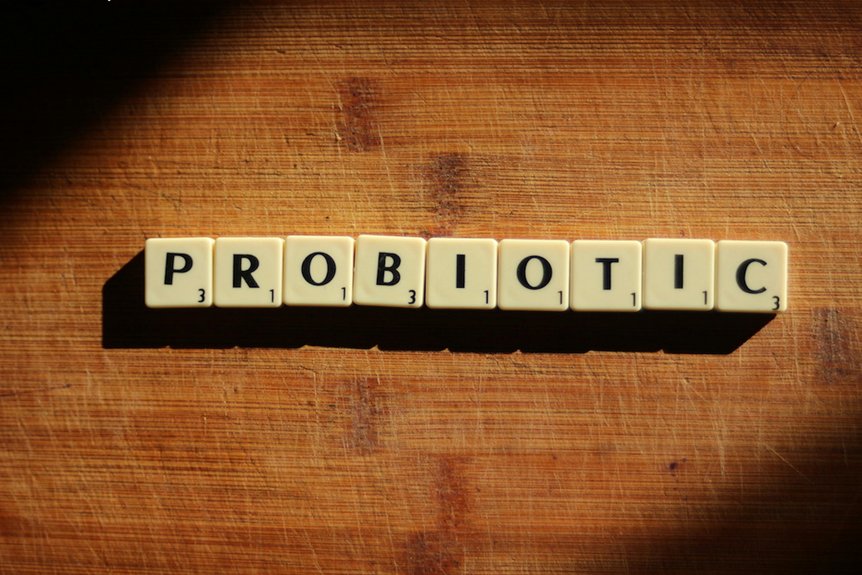
Your poop can tell you a lot about your gut health. The color, consistency, and smell of your stool offer valuable clues about your digestive system and overall well-being. For instance, have you noticed any changes in your stool lately? These changes might point to dietary issues or even underlying health concerns. Understanding what your poop says about you is essential for maintaining good health, and there’s much more to uncover.
The Importance of Poop in Gut Health
When you think about gut health, you mightn’t immediately consider your poop, but it’s actually a vital indicator of your digestive well-being. Your stool can reveal a lot about what’s happening inside your gut.
Regular bowel movements suggest that your digestive system is functioning well, while irregularity might signal issues like dehydration or dietary imbalances. The consistency of your poop also matters—too hard or too loose can indicate problems.
Plus, the presence of undigested food can hint at malabsorption issues. By paying attention to these signs, you can make informed choices about your diet and lifestyle. Incorporating supplements like MCT Wellness may also support overall gut health and digestion.
Understanding Stool Color
Have you ever glanced at your stool and wondered what its color might reveal about your health? Stool color can provide valuable insights into your digestive system.
Generally, brown is the norm, indicating a healthy balance of bile and digestion. However, if you notice green stool, it might mean you’ve eaten lots of leafy greens or that food is moving too quickly through your intestines.
Yellow can signal excess fat, while red or black may indicate bleeding in the digestive tract, which requires immediate attention.
Keep in mind that certain foods, like beets or food dyes, can also alter your stool color. Paying attention to these changes can help you stay informed about your gut health and overall well-being.
Analyzing Consistency: The Bristol Stool Scale
While the color of your stool gives important clues about your digestive health, its consistency can be just as revealing.
The Bristol Stool Scale is a handy tool that categorizes stool into seven types, ranging from hard lumps to liquid. Type 1 indicates severe constipation, while Type 7 suggests diarrhea. Ideally, you want to aim for Type 3 or Type 4, which are soft and formed, indicating a healthy gut.
Pay attention to any shifts in consistency; they can signal changes in your diet or digestive issues. By understanding where your stool falls on this scale, you can gain valuable insights into your gut health and take proactive steps to improve it.
Frequency Matters: What’s Normal?
Understanding how often you poop is essential for gauging your gut health. Most experts agree that normal frequency ranges from three times a week to three times a day.
However, what matters more is your individual baseline. If you usually go once a day and suddenly find yourself going less frequently, it could signal a problem. Consistency is key—if your routine shifts dramatically, it might be worth investigating.
Factors like diet, hydration, and stress can impact your frequency, so keep an eye on these elements. Keeping a poop diary can help you track changes and recognize patterns.
Smell: The Scent of Your Gut’s Health
The smell of your poop can reveal a lot about your gut health, often serving as a red flag for potential issues. If you notice a particularly foul odor, it might signal an imbalance of bacteria in your gut or even an infection.
A strong, rotten smell could indicate that your body isn’t properly digesting certain foods. On the other hand, a more neutral scent is usually a sign of a healthy gut.
It’s also essential to pay attention to any sudden changes in odor, as they can point to underlying problems. By being mindful of these scents, you can gain valuable insights into your digestive health and take steps to improve it if necessary.
Dietary Impact on Stool Characteristics
What you eat plays a significant role in determining the characteristics of your stool. A diet rich in fiber, found in fruits, vegetables, and whole grains, leads to well-formed stools that are easier to pass.
On the other hand, a diet high in processed foods and sugar can result in irregularities, like constipation or diarrhea. Protein sources, especially red meat, can make your stool darker or smellier.
Additionally, healthy fats, such as those from avocados or nuts, contribute to smoother digestion. Don’t forget hydration—water helps fiber do its job!
Signs of Dehydration: When to Be Concerned
When you’re not drinking enough fluids, your body can start sending out red flags that signal dehydration. You might notice dark yellow urine, which indicates concentrated waste.
If you’re feeling unusually thirsty or have a dry mouth, that’s another sign your body needs more hydration. Fatigue, dizziness, or lightheadedness can also creep in, especially if you’ve been active.
Additionally, if your skin feels less elastic or doesn’t bounce back when pinched, it’s time to grab a glass of water.
Pay attention to these signs; dehydration can lead to more serious health issues if ignored. So, don’t wait until you’re parched—keep your fluid intake steady and listen to your body’s needs!
Common Digestive Disorders Reflected in Stool
Keeping an eye on your hydration levels can help you notice changes in your body, including your stool. If you see watery, loose stools, it might indicate diarrhea, often linked to infections or food intolerances.
On the other hand, hard, pellet-like stools can signal constipation, which may stem from a lack of fiber or dehydration. If your stool appears pale or clay-colored, it could suggest issues with your liver or bile production.
Dark, tarry stools might indicate bleeding in the upper digestive tract, while bright red blood signals problems in the lower intestine.
When to Seek Medical Advice
If you notice persistent changes in your stool or experience discomfort, it’s essential to seek medical advice. Pay attention if you see blood, mucus, or if your stool changes color markedly.
Persistent diarrhea or constipation lasting more than a few days can signal underlying issues that need attention. Additionally, if you’re experiencing unexplained weight loss, severe abdominal pain, or persistent bloating, don’t hesitate to consult a healthcare professional.
These symptoms can indicate conditions like infections, inflammatory bowel disease, or even colorectal cancer. Remember, your gut health is vital, and addressing issues early can make a considerable difference.
Trust your instincts; if something feels off, it’s always better to get checked out sooner rather than later.
Tips for Maintaining Healthy Digestion
Maintaining a healthy gut goes beyond just recognizing when to seek medical help; it involves adopting habits that promote good digestion every day.
Start by eating a balanced diet rich in fiber from fruits, vegetables, and whole grains. Don’t forget to stay hydrated—water aids digestion and helps prevent constipation.
Regular physical activity boosts your digestive system, so get moving! Also, consider reducing stress through mindfulness or yoga; stress can disrupt digestion.
Pay attention to your eating habits too; chew your food thoroughly and avoid eating too quickly.
Finally, keep a food diary to identify any foods that might trigger discomfort.






